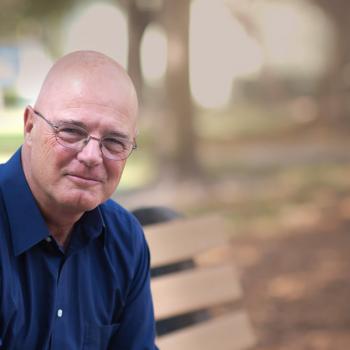Here’s the Question:
I am a pastor who has been blessed by your writings and by hearing you speak on several occasions. Thank you so much for your ministry and for challenging the Church in this rapidly changing world we find ourselves in! I pastor a [young] church plant that has been mobile since its early days. We are currently in our third location for worship gatherings – which is a gym that we only rent for 4 hours on Sunday mornings. Small groups, meetings and missional engagements are done in homes or other locations in the community. I am struggling with a growing number of congregants who believe we need to move towards obtaining a building “to have a place we can call our own.” From a purely rational and financial standpoint, this wouldn’t seem like a good move. In our 50/60 member congregation, a small handful of families are essentially helping the church “break even” with our finances. Aside from our worship gathering, we have only 2 or 3 active small groups (currently meeting in homes twice a month) and 1 board meeting a month. With that in mind, it would seem like a waste to pay for a building with our current schedule and meeting times.
From a purely missiological perspective, looking towards a church building appears completely unnecessary in this day and age, even though I submit that a building could be used as an outreach to the community.
Knowing that you pastored a church that was mobile for 15 years, I was wondering if you could offer any encouragement, advice or resources that might help us move away from a “building mentality.”
Here’s my Response:
I think our congregation went a total of 17 years without a facility, and early on, we said that we never would own one. About 12 years into the process, though, I remember feeling that we had reached a tipping point: the energy needed to set up and take down every Sunday in a rented school was becoming a real problem. We either needed to change the way we were doing church or we needed to get more permanent facilities through purchase or lease.
Early on, one of my mentors taught me a little acronym about getting work done: TIME = time, intelligence, money, and energy. If you want to save energy, it will take more time, intelligence, and money. If you want to save money, it will take more time, intelligence, and energy, and so on. In those terms, to save the time and energy of setting up and taking down, we were willing to spend more money (and hopefully, engage more intelligence) in acquiring our own facility.
I think that was a good decision for us at the time. Human beings have bodies, and bodies need facilities, and facilities cost money, and money is often available if we will put in the time, intelligence, and energy to procure it. The purpose of making and forming disciples of Jesus Christ is no less important than selling pizza, caring for the sick, providing exercise equipment, or showing movies – purposes for which buildings are often constructed and maintained.
If I were planting a church today, I would consider all available options, just as we did back then:
1. Is there another church in the area that would be willing to explore renting, leasing, selling, or co-owning a facility with us? With so many churches being under-utilized, this option deserves more attention than it normally gets. Of course there are problems associated with it, but that’s true of every option.
2. Could we find an arrangement where we could store our gear on site instead of having to store it in a truck and transport it every week? (I think we actually had utilized this option at a college for a while – we built a storage shed on the college’s property, which became theirs after we left.)
3. Should we find another way of “doing church?” For us, the combination of “big worship” space and kids’ programs was unsustainable in rented facilities after 17 years. Could/should we consider finding another way to do worship other than as a big and complex gathering? Could/should we find another way of doing kids’ ministry other than in traditional classrooms? Could we combine frequent interactions online, in homes, in restaurants, and in other public places with less frequent gatherings in rented facilities?
I sometimes say that if I were planting a church today, I might focus on quarterly weekend retreats and annual weeks of mission or pilgrimage over weekly meetings. I think there is a balance in spiritual formation between intense experiences (like retreats, mission trips, and pilgrimages) and regular experiences (like weekly meetings), and that we often prioritize the latter, when the former has more power. But that decision – to build the congregation around something other than weekly, in-person gatherings – might mean the congregation wouldn’t be able to afford, not just a building, but a full-time pastor … which raises a whole new set of issues.
All this highlights the deeper issue: what really is our goal in planting a church?
The truth is that many of us plant churches not primarily because we are interested in forming missional communities of missional disciples, but rather because we feel obligated to do something on Sundays, and we can’t survive with the available options. There’s nothing wrong with that, I suppose, but it should at least be acknowledged.
In the end, we decided on a fourth option:
4. Can we build a facility that, over the long haul, is worth the money and energy invested in it? Can we make it beautiful, functional, energy-efficient, and flexible enough to serve our faith community and the surrounding community over a long period of time under changing circumstances?
That decision was a good one for us in the mid-90’s, I think. Of course, I’ve been gone from that beautiful congregation seven years now and I imagine the facilities question has been raised again since then (as it should be).
I should add that church planters and their teams probably need to think more about sustainability than they often do. That’s another place where the TIME formula comes into play. Sometimes church planters want to save money (or to avoid having to raise money), so they put in so much time and energy that they fall apart in other areas – emotional exhaustion, family breakdown, etc. Those are excessive costs. It’s often very expensive (in terms of time, intelligence, and energy) to be cheap (in terms of money).
All that’s to say that I couldn’t predict which option would be right for you, but I would encourage you not to be in a rush and not to be either conventional or unconventional as an ideological conviction. Instead, I’d encourage you to make the facilities question one for patient and sincere spiritual discernment. (If you need input on spiritual discernment, here’s a good resource: http://listeninghearts.org)
One final thing: I thank God for you, and all church planters like you. We need thousands of new churches that will innovate and experiment and serve as the R & D department for Christian faith. Thanks for serving us all in this way. I’m thanking God for you and praying for you today, and I hope many others will join me.











